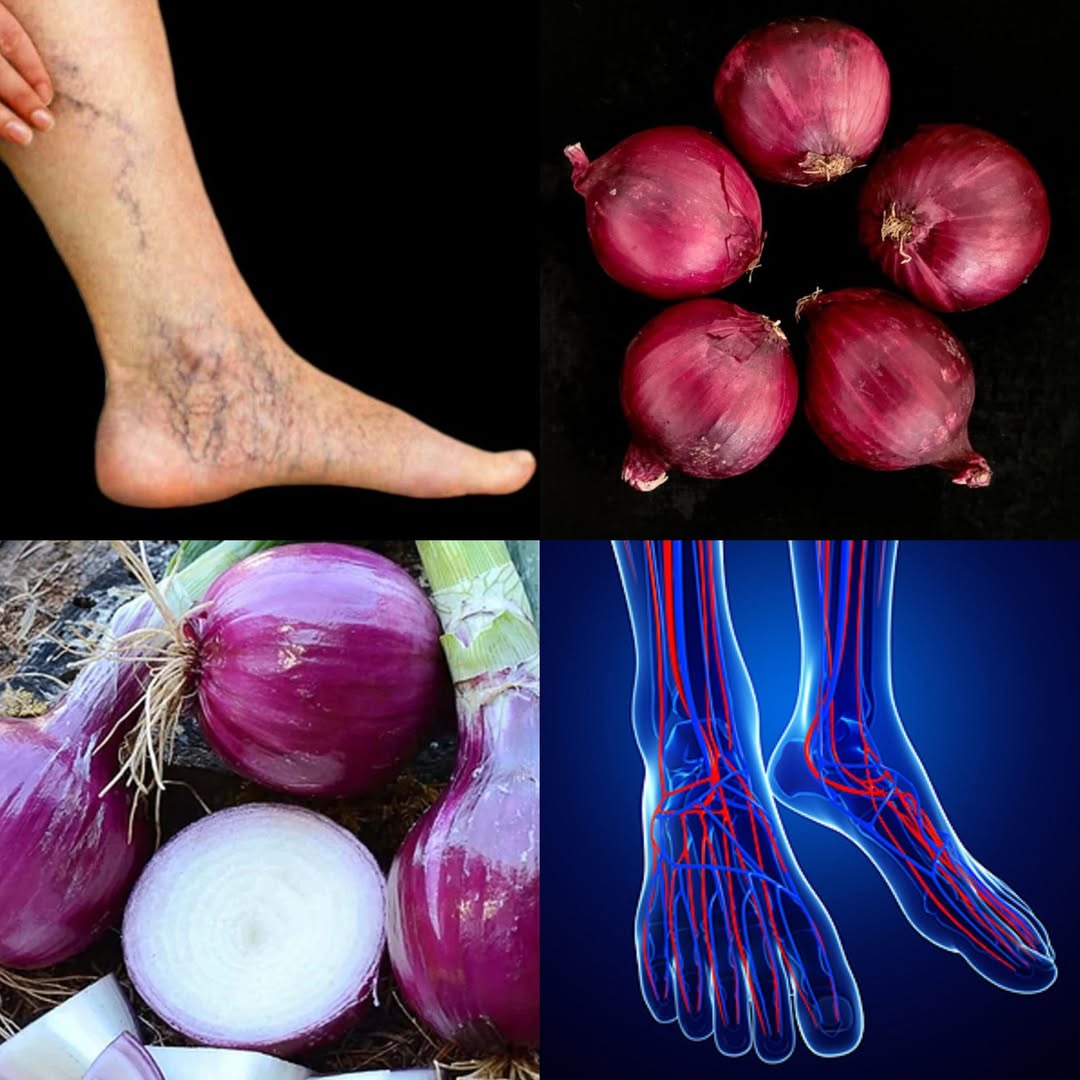Varicose veins and foot pain can be more than just a cosmetic issue – they can be a source of chronic discomfort and concern. While many people resort to expensive treatments or surgeries to address these issues, there’s a 100% natural remedy that can help alleviate varicose veins and foot pain: red onion.
Red onions are often praised for their flavor and nutritional value, but they also offer a natural solution to improve circulation, reduce inflammation, and support the health of your veins. This remedy is not only effective but also simple and inexpensive. Let’s dive into the benefits of red onions and how you can use them to say goodbye to varicose veins and foot pain.
Why Red Onions are Effective for Varicose Veins and Foot Pain
Red onions contain powerful antioxidants like quercetin and flavonoids, which can help strengthen blood vessels and improve circulation. Here’s why they’re particularly beneficial for varicose veins and foot pain:
1. Anti-Inflammatory Properties:
Red onions have natural anti-inflammatory compounds that help reduce swelling and discomfort in the veins and surrounding tissues. By decreasing inflammation, you can alleviate the pain and pressure that often accompany varicose veins.
2. Improved Blood Circulation:
The flavonoids in red onions promote better circulation, which is key for managing varicose veins. Improved blood flow reduces the pressure on the veins, preventing them from becoming enlarged and twisted. As a result, varicose veins may gradually fade away.
3. Rich in Antioxidants:
Red onions are rich in antioxidants that help combat oxidative stress in the body. This is important because oxidative stress can damage blood vessels, making them weaker and more prone to problems like varicose veins. The antioxidants in red onions help repair and protect the veins, contributing to better overall vein health.
4. Natural Pain Relief:
The natural compounds in red onions have analgesic (pain-relieving) properties. This makes them helpful for easing the foot pain, heaviness, and discomfort often caused by varicose veins.
